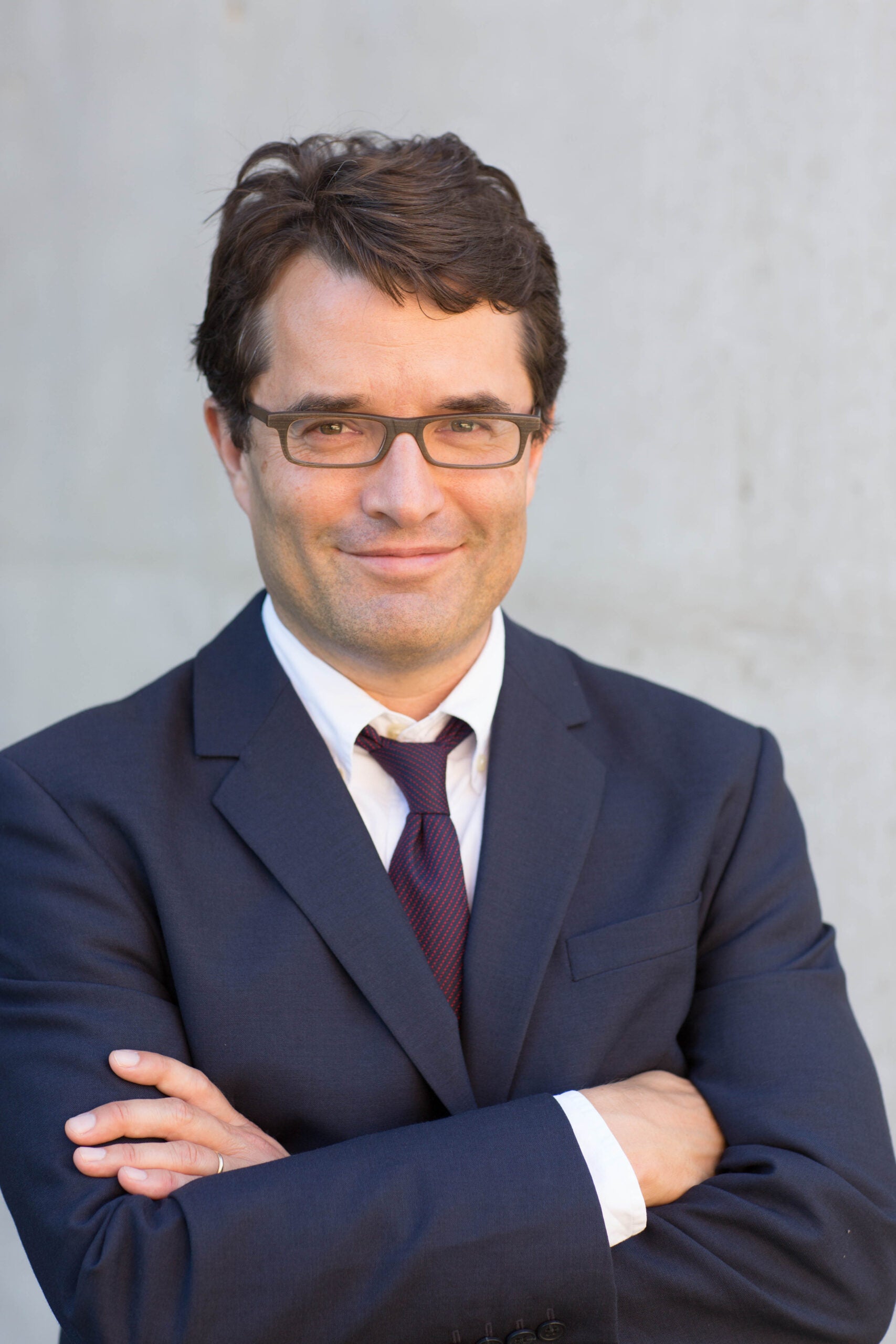In commemoration of the 70th anniversary of the Nuremberg Trials, Harvard Law School Professor of Practice Alex Whiting moderated a conversation between Ambassador Christian Wenaweser, permanent representative of Liechtenstein to the United Nations, and Harold Hongju Koh ’80, Sterling Professor of International Law at Yale Law School, who previously served as legal adviser of the U.S. Department of State. The two engaged in dialogue about the work of the International Criminal Court as the modern-day successor to the Nuremberg Trials and the significance of the ICC’s pending definition of the crime of aggression.
Koh and Wenaweser described their involvement in the 2010 Kampala Conference, a gathering of state parties to the ICC that developed a definition of the crime of aggression. The definition is pending a final vote of ratification by two-thirds of the Assembly of States Party in 2017. Successful ratification would mark the first time since Nuremberg that an international tribunal has jurisdiction to adjudicate a prosecution for the crime of aggression. Wenaweser described ratification as the fulfillment of the 1998 Rome Statute that established the ICC. He noted that “The value of having [the definition] in the statute is that, for the first time in history, you have an internationally agreed-upon definition of what the crime of aggression is, what an illegal war is. The most important achievement of the definition is that, as a policymaker, legislator, or lawmaker, you have a legal basis to decide if the actions you are about to take are in accordance with international law.”
While Koh concurred with Wenaweser’s assessment of the definition’s significance, he focused on a shortcoming of the definition that he regards as a fatal flaw: it does not include an exception for the use of force for humanitarian intervention. According to Koh, political leaders should ask if “atrocity prevention by using force to prevent genocide, war crimes, or crimes against humanity [the other crimes under ICC jurisdiction] could conceivably be prosecuted as a crime of aggression.” He posited the concern that such a regime could discourage atrocity prevention, forcing a reliance on ex post accountability for human rights offenses.
Koh and Wenaweser differed in their view of the magnitude of this problem and potential solutions. Wenaweser noted that “states parties that share [Koh’s] concerns can just say so by making a declaration to the ICC that the [crime of aggression] regime does not apply to them. No explanation is required.” For Koh, this solution is not viable and does not address the major issue of potential prosecution for humanitarian intervention. He offered an alternative model in which states parties would agree to an “interpretive statement creating a global understanding of what this is about: if you make a good faith, serious effort at humanitarian intervention that meets certain objectively verifiable standards, you are not subject to prosecution.” Wenaweser cautioned that Koh’s remedy is not so simple, as the existing language of the definition resulted from negotiations aimed at consensus. Further, “the jurisdiction [of the definition] is so narrow, in combination with the mechanism for states parties to opt out of the crime of aggression regime, that cases may not arise for a long time. This is not the point. The point is to have legal clarity in domestic discussions about the use of force and the possibility of having, over time, a potentially growing exercise of jurisdiction by the court,” he said.
While Koh advocates a pre-ratification clarification of the definition to explicitly exempt humanitarian intervention, Wenaweser maintains that the most important goal is to ratify and enact the statute and empower the ICC to enforce it. The conversation illuminated the fault lines in debate about international criminal prosecution as well as the progress towards and obstacles confronting the continuation of the Nuremberg legacy in the present day.
